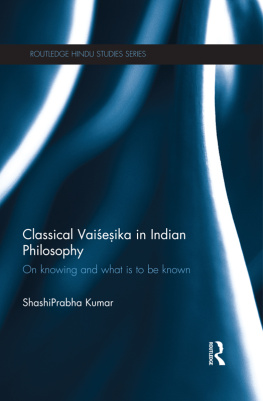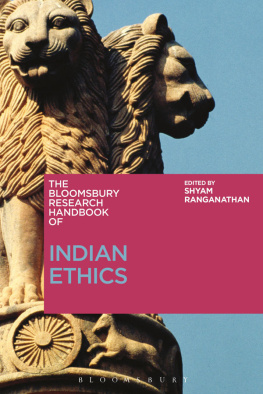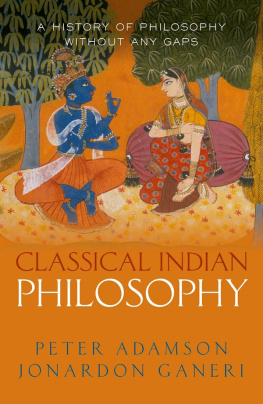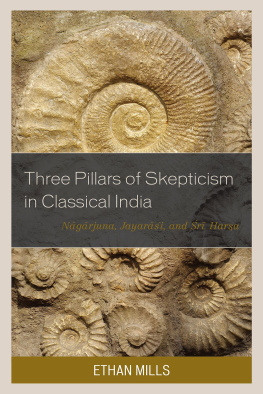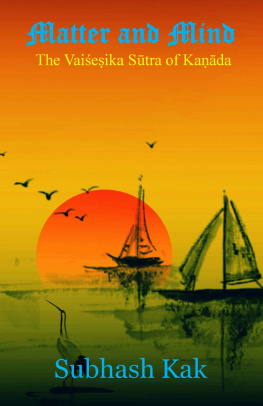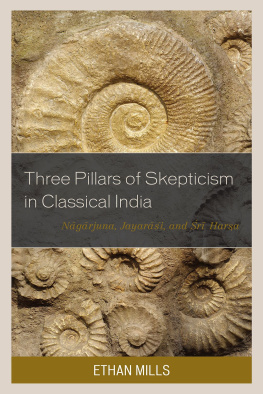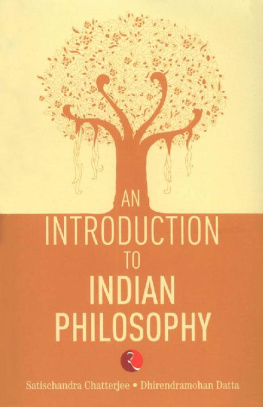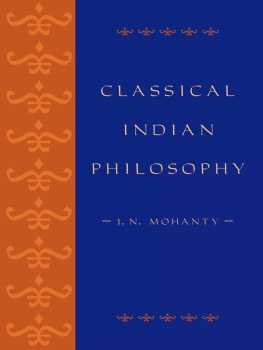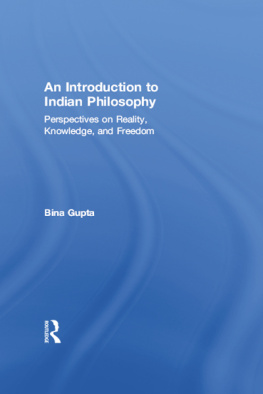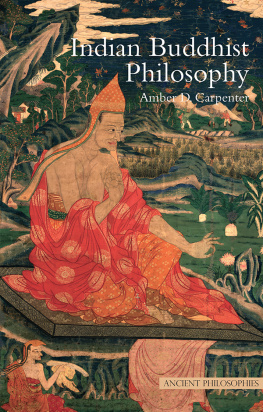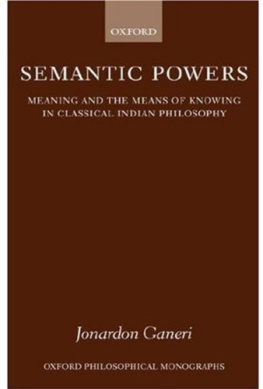Classical Vaieika in Indian Philosophy
Vaieika is one of the six systems of Hindu philosophy. It represents a pluralistic realism and is usually held to be an atomistic, metaphysical theory. This book explores the basic tenets of the classical Vaieika school of Indian philosophy from a new perspective. It argues that Vaieika reveals an epistemological formulation of its own, which was diminished due to later developments in the history of Indian philosophical tradition.
Focusing on the principles of knowable objects and the processes of knowing as propounded by the Vaieika school of Indian philosophy, the book offers a fuller appreciation of its theories. Providing a balanced approach by examining earliest available material in the original sources of Vaieika and concentrating on the epistemological pattern adopted therein, it presents an authentic and comprehensive understanding of Vaieika concepts. This is the first introductory sourcebook in English for the authentic study of Vaieika, and is of use to students and scholars of World Religion and Philosophy.
ShashiPrabha Kumar is Professor and Chairperson of the Special Centre for Sanskrit Studies at Jawaharlal Nehru University, India.
Routledge Hindu Studies Series
Series Editor: Gavin Flood, Oxford Centre for Hindu Studies
Former Series Editor: Francis X. Clooney, SJ, Harvard University
The Routledge Hindu Studies Series, in association with the Oxford Centre for Hindu Studies, intends the publication of constructive Hindu theological, philosophical and ethical projects aimed at bringing Hindu traditions into dialogue with contemporary trends in scholarship and contemporary society. The series invites original, high-quality, research-level work on religion, culture and society of Hindus living in India and abroad. Proposals for annotated translations of important primary sources and studies in the history of the Hindu religious traditions will also be considered.
Epistemologies and the Limitations of Philosophical Inquiry
Doctrine in Mdhva Vednta
Deepak Sarma
A Hindu Critique of Buddhist Epistemology
Kumarila on perception
The Determination of Perception chapter of Kumarilabhattas Slokarvarttika translation and commentary
John Taber
Samkaras Advaita Vedanta
A way of teaching
Jacqueline Hirst
Attending Kas Image
Caitanya Vaisnava Mrti-sev as devotional truth
Kenneth Russell Valpey
Advaita Vednta and Vaiavism
The philosophy of Madhusdana Sarasvat
Sanjukta Gupta
Classical Skhya and Yoga
An Indian metaphysics of experience
Mikel Burley
Self-surrender (Prapatti) to God in rvaiavism
Tamil cats and Sanskrit monkeys
Srilata Raman
The Caitanya Vaiava Vednta of Jva Gosvm
When knowledge meets devotion
Ravi M. Gupta
Gender and Narrative in the Mahbhrata
Edited by Simon Brodbeck and Brian Black
Yoga in the Modern World
Contemporary perspectives
Edited by Mark Singleton and Jean Byrne
Consciousness in Indian Philosophy
The Advaita doctrine of awareness only
Sthaneshwar Timalsina
Desire and Motivation in Indian Philosophy
Christopher G. Framarin
Women in the Hindu Tradition
Rules, roles and exceptions
Mandakranta Bose
Religion, Narrative and Public Imagination in South Asia
Past and place in the Sanskrit Mahbhrata
James Hegarty
Interpreting Devotion
The poetry and legacy of a female Bhakti saint of India
Karen Pechilis
Hindu Perspectives on Evolution
Darwin, dharma, and design
C. Mackenzie Brown
Pilgrimage in the Hindu Tradition
Salvific space
Knut A. Jacobsen
A Womans Ramayana
Candravatis Bengali epic
Mandakranta Bose and Sarika Priyadarshini Bose
Classical Vaieika in Indian Philosophy
On knowing and what is to be known
ShashiPrabha Kumar
First published 2013
by Routledge
2 Park Square, Milton Park, Abingdon, Oxon OX14 4RN
Simultaneously published in the USA and Canada
by Routledge
711 Third Avenue, New York, NY 10017
Routledge is an imprint of the Taylor & Francis Group, an informa business
2013 ShashiPrabha Kumar
The right of ShashiPrabha Kumar to be identified as author of this work has been asserted by her in accordance with sections 77 and 78 of the Copyright, Designs and Patents Act 1988.
All rights reserved. No part of this book may be reprinted or reproduced or utilised in any form or by any electronic, mechanical, or other means, now known or hereafter invented, including photocopying and recording, or in any information storage or retrieval system, without permission in writing from the publishers.
Trademark notice: Product or corporate names may be trademarks or registered trademarks, and are used only for identification and explanation without intent to infringe.
British Library Cataloguing in Publication Data
A catalogue record for this book is available from the British Library
Library of Congress Cataloging in Publication Data
Kumar, ShashiPrabha, 1951
Classical Vaisesika in Indian philosophy : on knowing and what is to be
known/ShashiPrabha Kumar.
p. cm.
Includes bibliographical references and index.
1. Vaisesika. 2. Ontology. I. Title.
B132.V2K84 2013
181.44dc23
2012033407
ISBN: 978-0-415-54918-9 (hbk)
ISBN: 978-0-203-44108-4 (ebk)
Preface
This book addresses itself to the modern Western student, both postgraduate and undergraduate, who would like to get an authentic and intrinsic introduction to the Vaieika school of Indian philosophy. At the same time it also intends to cater to scholars, albeit in a limited manner, Indian as well as Western, to whom a more detailed presentation of facts and discussion of problems in the original sources of Vaieika may be welcome.
Vaieika is one of the six systems of Hindu philosophy. Propounded by Kada, the system represents a pluralistic realism and is usually held to be an atomistic, metaphysical theory. However, on closer study, it reveals an epistemological formulation of its own, which was diminished due to later developments in the history of Indian philosophical tradition. Being a student of Vaieika during the last three decades, I have found sufficient material to substantiate the view that the system offers a lot of material for thought which needs to be studied in its earlier sources, not only as an ontological theory but also as an epistemological approach.
As the title Vaieika itself indicates, the system is so designated because it highlights the individual differences among various entities of the universe rather than their inherent unity or underlying oneness. Accordingly, this book intends to present the theories of Vaieika in an epistemological format. The primary purpose of this exercise is to deepen the existing scholarly understanding of the origins and early development of this critical and positive branch of Indian learning and to relate it to the current discussion on development of Indian philosophical thought in general.

